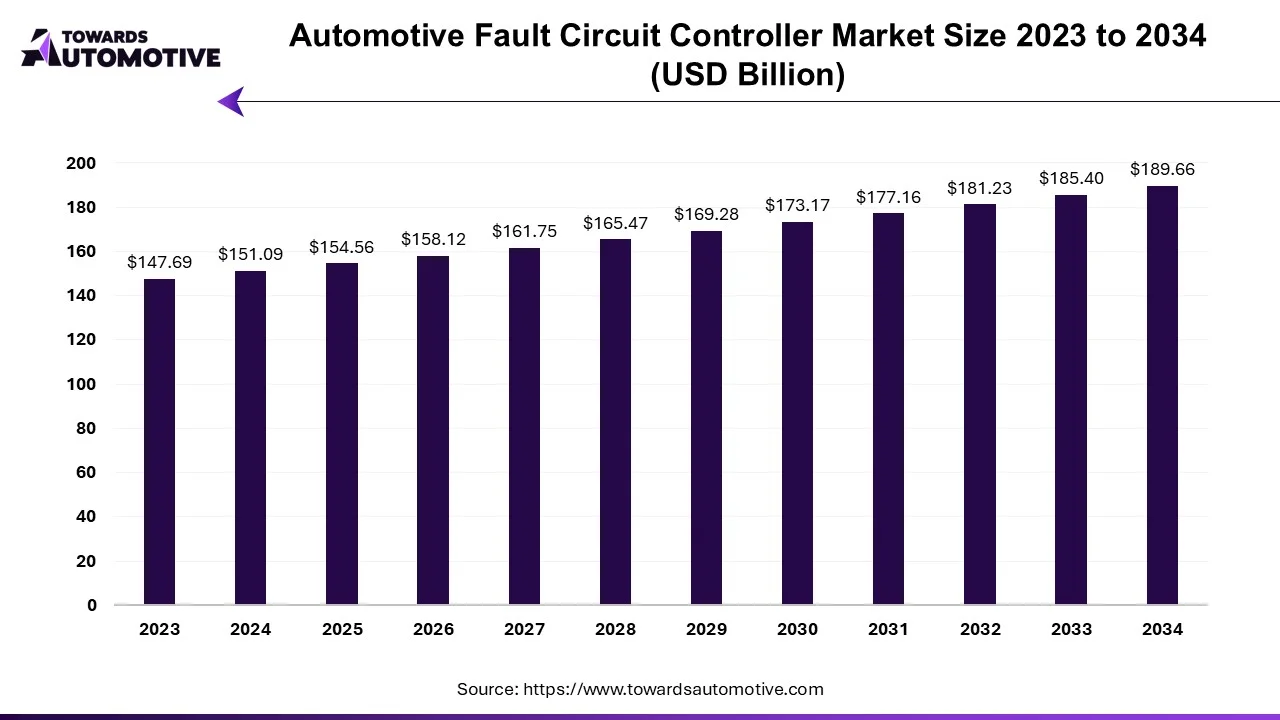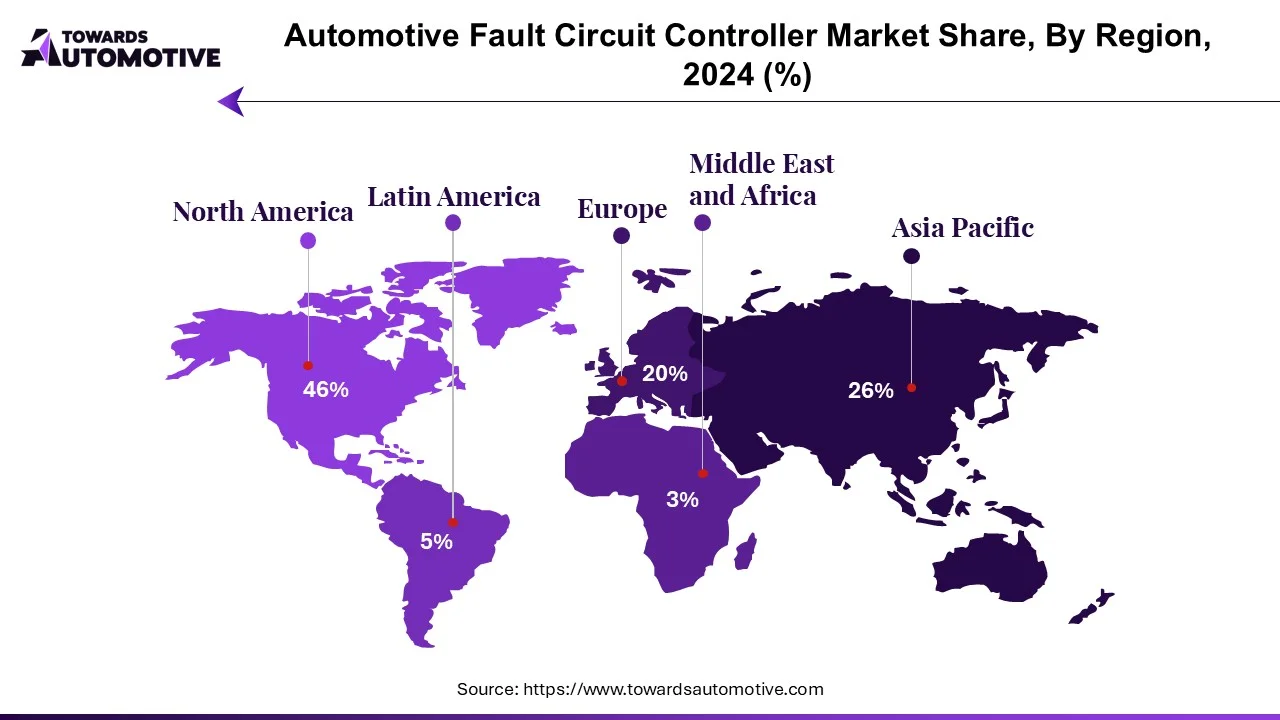August 2025
The automotive fault circuit controller market is expected to grow from USD 154.56 billion in 2025 to USD 189.66 billion by 2034, with a CAGR of 11.92% throughout the forecast period from 2025 to 2034.

Unlock Infinite Advantages: Subscribe to Annual Membership
Fault circuit indicators play a crucial role in identifying power faults, whether through visual or remote indication, in electricity distribution systems. They are instrumental in minimizing the duration of electricity outages for customers. Typically, these indicators measure the electric or magnetic field surrounding a conductor to detect faults. Modern versions employ various mechanisms for fault detection, such as current transformers, load switches, and circuit breakers.
There are different types of fault circuit indicators, including power line fault meters, panel meters, and others, each serving specific applications. Ground fault indicators, short circuit indicators, and combined short circuit and ground fault indicators are among the segments in the circuit fault market. Some advanced systems utilize plasma-based technology, capable of handling currents up to 10,000 amps while maintaining a negative voltage rating for safety.
The automotive industry's pursuit of lighter, more fuel-efficient vehicles in response to rising fuel prices and stricter emissions regulations has led to the replacement of traditional electric and hydraulic systems with electric motors. This shift has substantially increased the amount of electricity carried by the vehicle's electrical wiring and connections (EWIS), nearly doubling their capacity. Consequently, the interconnectivity of generators has surged, elevating the risk of short-circuit currents. Fault current limiters address this challenge, providing reliable and cost-effective protection against surge currents, thus fostering industry growth.
Fault circuit controllers are integral to ensuring uninterrupted operation by regulating current values in fault circuits, particularly in automotive systems. Original equipment manufacturers (OEMs) continue to invest in research and development to create simple electronic products that align with advancements in electronic technology. The electric vehicle market is poised for significant growth, with a projected CAGR exceeding 21% during the forecast period. Favorable government policies, including subsidies, tax breaks, and other incentives, are expected to bolster industry expansion in the coming years.
Safety and security features such as cruise control, theft alarm systems, lane departure warnings, immobilizers, brake assistance, and impaired driving prevention mechanisms are critical in preventing accidents and ensuring security on the roads. These advanced features are integrated into vehicles using a variety of electronic components. The growing awareness of environmentally friendly transportation options has led to a rise in electric vehicle sales, increasing the demand for connected vehicles. The forecast period anticipates the production of over 150 hybrid electric vehicle models, presenting significant opportunities for companies specializing in connected vehicle technologies.
Regulations also play a crucial role in shaping the business landscape. Several countries have proposed bans on internal combustion engine (ICE) vehicles, driving the popularity of electric vehicles. For instance, Norway has set a target year of 2025 to ban the use of hybrid vehicles, while China has announced plans to ban electric vehicles by 2030. This shift towards electric vehicles is expected to drive demand for connected vehicle solutions in the forecast period.
Ensuring passenger safety remains a top priority for governments and automotive companies alike. Governments worldwide are mandating the implementation of safety systems such as anti-lock braking systems (ABS), airbag systems, and warning mechanisms in vehicles to reduce accidents. These regulations have spurred the growth of the automotive safety systems market, fostering innovation and technological advancements aimed at enhancing road safety.

The United States remains a key player in the global automotive market, boasting over 4.7 million vehicles sold in 2019. With diverse market needs, the U.S. stands out as a leading manufacturer of electronic and security equipment for automobiles. Original Equipment Manufacturers (OEMs) are channeling investments into research and development to produce high-performance, cost-effective products, driving growth in the industry. Leveraging design, innovation, and industry best practices, the U.S. is poised to maintain its leadership in automobile safety technologies, particularly in whiplash protection.
Moving forward, OEMs must uphold their commitments to safety advancements to avoid the risk of product obsolescence. While the integration of electronic security systems into government mandates may influence consumer preferences, manufacturers prioritize these systems differently. As domestic demand for electric vehicles rises, the automotive industry anticipates a corresponding increase in electric vehicle adoption in the coming years. This surge in demand aligns with the technological advancements driving automobile exports and electronic product demand.
Regulatory standards set by the Environmental Protection Agency (EPA) play a pivotal role in shaping the automotive industry, particularly in reducing vehicle emissions. The EPA's mandate to increase miles per gallon (mpg) standards to 54.5 mpg by 2025 underscores the industry's focus on fuel efficiency and sustainability. Meeting these standards necessitates innovation, potentially driving advancements in auto racing technologies.
Despite challenges posed by the COVID-19 pandemic, which led to a decline in automotive demand in March 2020, strategies aimed at revitalizing the industry are expected to spur growth. The implementation of initiatives to stimulate the automotive sector is anticipated to boost passenger car sales during the forecast period. Electric vehicle adoption is positioned to play a key role in this recovery effort, aligning with the nation's push towards cleaner energy solutions.
The automotive fault circuit control industry remains fragmented, with several major players vying for market dominance. Key contenders in this sector include ABB Ltd., Siemens AG, Alstom, General Electric Industries, and Superpower. Investors should anticipate fierce competition characterized by aggressive tactics such as acquisitions, pricing strategies, mergers, and continual product innovations.

The automotive fault circuit controller market report offers comprehensive insights into the latest trends and technological advancements within the industry. It provides detailed analysis of demand based on Device Type, Voltage, Vehicle Type, and Geography, highlighting the market shares of major players. This report serves as a valuable resource for businesses looking to understand market dynamics and make informed decisions regarding investment, product development, and strategic planning within the automotive fault circuit controller sector.
Type
Voltage
Vehicle Type
By Geography
August 2025
August 2025
August 2025
July 2025
We offer automotive expertise for market projections and customizable research, adaptable to diverse strategic approaches.
Contact Us